26 Ways To Reclaim Your Identity After Losing Yourself In Marriage
You don’t lose yourself in marriage overnight. It happens gradually—through the compromises, the caregiving, the silent sacrifices you make to keep everything running smoothly.
You become ‘we’ instead of ‘me,’ and before you know it, you’re living a life that revolves around someone else’s needs, priorities, and dreams. Then one day, you wake up and realize: You have no idea who you are anymore. But here’s the good news—you’re still in there.
Your passions, your voice, your dreams—they didn’t disappear. They’ve just been buried under years of putting everyone else first. And now, it’s time to start reclaiming yourself.
If you’re ready to reconnect with the person you used to be (or discover the person you’ve become), here are 26 ways to reclaim your identity after losing yourself in marriage.
1. Reconnect with Old Hobbies
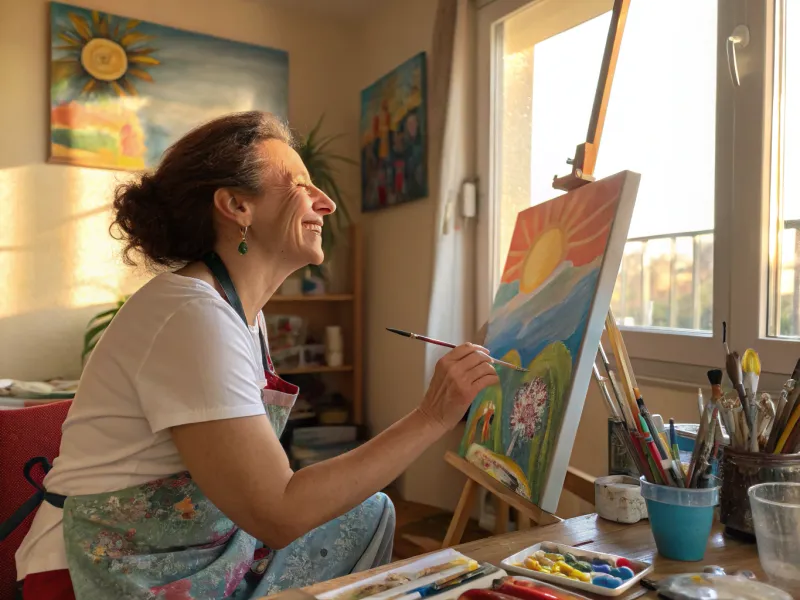
Rediscovering old hobbies can be a profound way to reconnect with yourself. Those activities you once loved can reignite forgotten passions and remind you of the person you once were. Whether it’s painting, playing an instrument, or gardening, these hobbies allow you to express yourself freely without judgment. They serve as a reflection of your unique interests and talents.
Spending time on activities you enjoy is not just a leisure pursuit. It can also be a meditative process, offering moments of introspection and peace. In a world where responsibilities often overshadow personal desires, making time for what you love is an act of self-care.
As you delve back into these pastimes, you might discover new aspects of your personality. Perhaps you’ll find a new style in your artwork or a different genre of music that resonates with you. These discoveries, however small, are a celebration of your individuality and a step towards reclaiming your identity. Embracing old hobbies is more than just nostalgia; it’s an empowering journey back to yourself.
2. Set Personal Boundaries

Setting personal boundaries is a pivotal step in reclaiming your identity. It involves defining what you are comfortable with in relationships and standing firm in those convictions. Boundaries are not about isolation; they are about establishing a space where you can thrive and express yourself authentically.
In marriage, lines can often blur, leading to feelings of being overwhelmed or undervalued. By clarifying your limits, you communicate your needs more effectively, fostering healthier interactions. This practice helps in maintaining a sense of self while nurturing your relationship.
Creating boundaries might initially feel challenging, especially if you’re accustomed to putting others first. However, it’s crucial for your mental and emotional well-being. It empowers you to say no without guilt and yes with enthusiasm, reinforcing your self-worth.
By respecting your own boundaries and expecting others to do the same, you cultivate an environment where you can grow and rediscover your true self. This journey is about balance—honoring your needs while cherishing the bonds you share with others.
3. Embrace Solitude
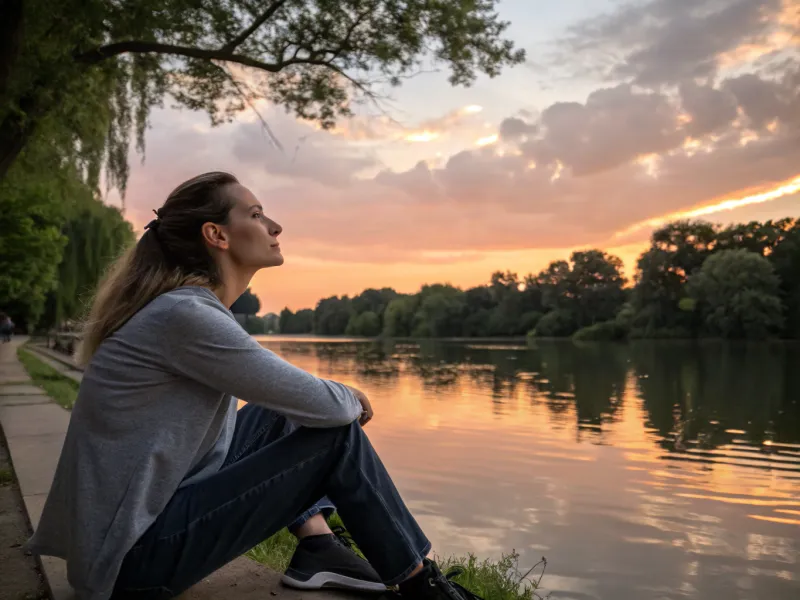
Embracing solitude can be a transformative experience in reclaiming your identity. It is in these quiet moments alone where you can truly listen to your inner voice. Solitude provides an opportunity to tune out external influences and focus on what resonates with you.
Spending time alone does not equate to loneliness. Instead, it’s a chance to recharge and reflect on your desires, goals, and passions without distractions. In the silence, you can question what truly matters and what makes you feel alive.
This time can be used to meditate, journal, or simply be present. It allows for introspection and self-discovery, helping you understand yourself on a deeper level. Embracing solitude is about nurturing a relationship with yourself, finding comfort in your own company.
By allowing yourself this space, you cultivate a strong sense of self that is independent of external validation. It’s an empowering step towards reclaiming your identity, reminding you that you are whole and complete as you are.
4. Pursue New Interests
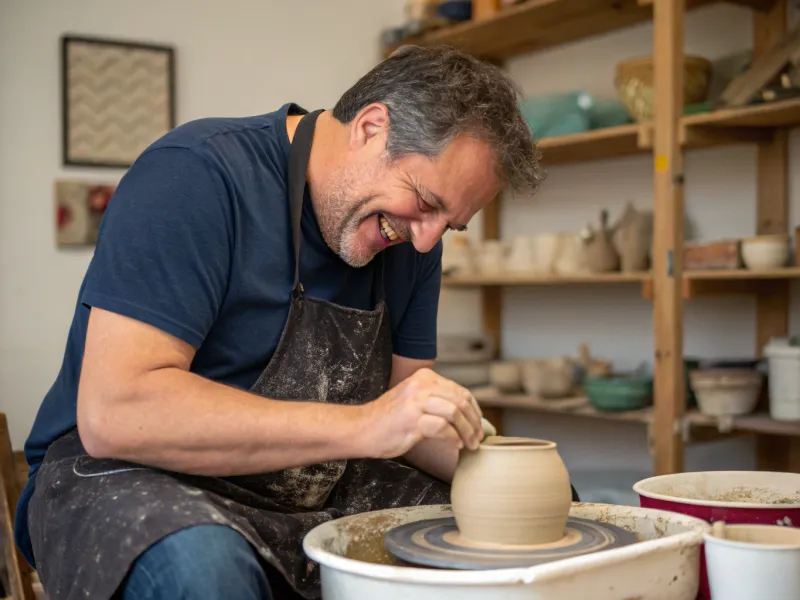
Pursuing new interests is a pathway to self-discovery and personal growth. Engaging in activities outside of your comfort zone can reveal talents and passions you never knew existed. It’s about breaking the routine and exploring different facets of your personality.
Trying something new—whether it’s a dance class, learning a new language, or taking up a new sport—can be exhilarating and enlightening. These experiences broaden your horizons and challenge you to think differently, fostering creativity and adaptability.
New interests can also introduce you to like-minded individuals, expanding your social circle and providing fresh perspectives. These connections can be inspiring and supportive, offering encouragement as you navigate your journey of self-reclamation.
By embracing the unfamiliar, you open yourself up to a world of possibilities. Each new skill or hobby adds to your identity, enriching your life with variety and depth. It’s a reminder that you are constantly evolving, and there is always more to discover about yourself.
5. Reevaluate Your Goals

Reevaluating your goals is a crucial step in reclaiming your identity. Over time, priorities and aspirations can shift, especially within the dynamics of marriage. Taking the time to reassess your objectives allows you to align with your true self
Begin by reflecting on what you truly want to achieve. Consider the dreams you’ve set aside and whether they still resonate with who you are today. This introspection helps in identifying which goals are genuinely yours and which have been influenced by external pressures.
Setting new goals or adjusting existing ones provides a sense of direction and purpose. It empowers you to take ownership of your journey and make decisions that reflect your values and desires. This process is not about discarding the past but rather evolving with intention.
By focusing on your aspirations, you reinforce your autonomy and reignite your passion for life. Reevaluating your goals is a step towards living authentically, ensuring that your path is guided by your true self, not societal expectations.
6. Prioritize Self-Care

Prioritizing self-care is an essential aspect of reclaiming your identity. It involves recognizing your needs and taking deliberate steps to nurture your physical, mental, and emotional well-being. Self-care is not indulgence; it’s a vital practice of self-preservation.
In marriage, it’s easy to prioritize the needs of your partner or family, often at the expense of your own. However, neglecting self-care can lead to burnout and a loss of self. By making time for activities that rejuvenate you, such as exercise, meditation, or a spa day, you affirm your worth.
Self-care also means setting boundaries and saying no to situations that drain you. It’s about creating a lifestyle that supports your health and happiness. This commitment to yourself is empowering, reinforcing your identity and self-esteem.
By prioritizing self-care, you cultivate a balanced life where you can thrive. It’s a reminder that you deserve to be cared for and nurtured, allowing you to show up fully in all areas of life, including your relationships.
7. Seek Professional Guidance

Seeking professional guidance can be a transformative step in reclaiming your identity. Therapists and counselors provide a safe space to explore your thoughts and emotions without judgment. Their expertise can help you navigate the complexities of self-discovery and identity reclamation.
Professional guidance is not indicative of failure or weakness. It’s a proactive approach to understanding yourself better and addressing any underlying issues. Therapy can offer new perspectives, helping you untangle the patterns and beliefs that have shaped your life.
Through counseling, you can develop coping strategies and gain insights into your behaviors and relationships. This process fosters self-awareness and personal growth, empowering you to make informed decisions about your life.
By seeking help, you take an active role in your well-being and personal development. It’s an investment in yourself, paving the way for a more authentic and fulfilling life. Professional guidance is a supportive tool on your journey to reclaiming your identity, providing clarity and direction.
8. Cultivate Self-Compassion

Cultivating self-compassion is a powerful practice in reclaiming your identity. It involves treating yourself with kindness and understanding, especially during times of struggle or doubt. Self-compassion is about acknowledging your imperfections without judgment.
In marriage, it’s easy to focus on the needs and happiness of your partner, often neglecting your own emotional well-being. By embracing self-compassion, you shift the narrative, allowing yourself to be a priority.
This practice involves speaking to yourself as you would a dear friend—offering support, encouragement, and forgiveness. It’s about letting go of the inner critic and fostering a nurturing inner dialogue.
By cultivating self-compassion, you create a foundation of self-love and acceptance. It empowers you to embrace your true self, complete with flaws and strengths. This journey is about honoring your humanity and recognizing that you are deserving of care and understanding. Self-compassion is a vital step towards reclaiming your identity, reminding you that your worth is not defined by external validation.
9. Rediscover Your Style

Rediscovering your style is an expression of your individuality and a step towards reclaiming your identity. Clothing and personal style reflect who you are, and embracing this can be empowering.
Over time, especially in the context of marriage, personal style can become neglected as other priorities take precedence. Taking the time to explore fashion that resonates with you is a form of self-expression and creativity.
Start by assessing your wardrobe and identifying pieces that truly make you feel confident and comfortable. Experiment with different styles, colors, and accessories. This exploration is about finding what feels authentic to you, rather than adhering to trends or external opinions.
Rediscovering your style can boost your confidence and self-esteem. It’s a reminder that you are a unique individual with tastes and preferences worth celebrating. This journey is about embracing the person you are today and expressing that identity to the world through your personal style.
10. Create a Personal Space
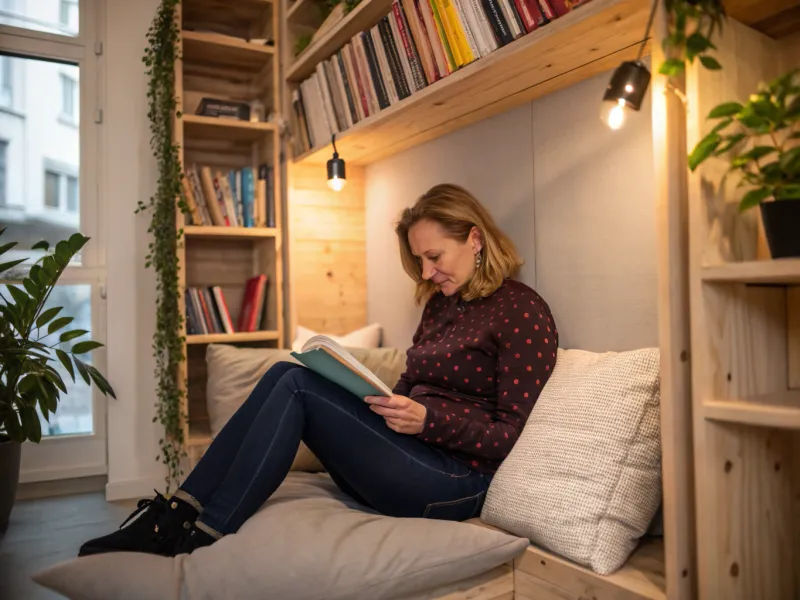
Creating a personal space is an essential step in reclaiming your identity. It’s about carving out a physical area that reflects your personality and provides sanctuary. This space becomes a retreat where you can recharge and connect with yourself.
In marriage, shared spaces can often overshadow individual needs. By dedicating a corner of your home to yourself, you honor your individuality and create a haven for self-reflection and relaxation.
Design this space with elements that bring you joy and peace. Whether it’s a cozy reading nook, a meditation corner, or a creative studio, fill it with items that inspire and comfort you. This area becomes a tangible representation of your identity.
Having a personal space allows you to retreat from the demands of daily life and focus on your well-being. It’s a reminder that your needs are important and deserve attention. Creating this environment fosters a sense of belonging to oneself, a crucial step in the journey of identity reclamation.
11. Practice Mindfulness
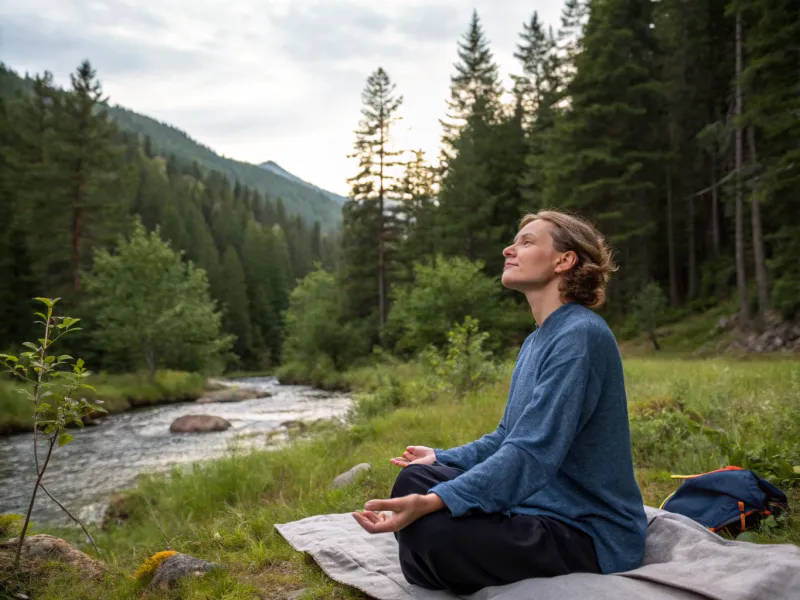
Practicing mindfulness is a transformative tool in reclaiming your identity. It involves being present and fully engaged with the moment, allowing you to connect with your true self.
Mindfulness encourages you to observe your thoughts and feelings without judgment, fostering self-awareness and acceptance. In a marriage, daily routines can become autopilot, and mindfulness helps break this cycle by bringing attention to your desires and emotions.
Engage in mindfulness practices such as meditation, deep breathing, or mindful walking. These activities promote relaxation and clarity, enabling you to make conscious, authentic choices.
By practicing mindfulness, you cultivate a deeper understanding of who you are and what you value. It empowers you to live intentionally and align your actions with your true self. Mindfulness is not just a practice; it’s a way of being that supports your journey to reclaiming your identity. It reminds you to be gentle with yourself and appreciate the present moment.
12. Engage in Creative Expression

Engaging in creative expression is a powerful way to reconnect with your identity. Creativity allows you to explore your thoughts and emotions in a non-verbal form, offering insights into who you are beyond labels and roles.
Whether it’s music, art, writing, or dance, creative expression provides a safe space to be authentic and vulnerable. It’s about releasing preconceived notions and allowing your inner voice to be heard.
This process can lead to self-discovery and healing, as it encourages exploration without judgment. Creativity requires no perfection; it’s an outlet for your soul to communicate and flourish.
By engaging in creative expression, you affirm your individuality and embrace your unique talents. It’s a celebration of your essence, reminding you that you are more than the sum of your responsibilities. This journey is about finding joy in creation and reclaiming your identity through the beauty of self-expression.
13. Join a Support Group

Joining a support group can be a valuable step in reclaiming your identity. It provides a community of individuals who share similar experiences, offering empathy, understanding, and encouragement.
In marriage, the sense of isolation can sometimes grow, and connecting with others who relate to your journey can be comforting. Support groups create a safe space to express your feelings and challenges without fear of judgment.
Through shared stories and discussions, you gain new perspectives and insights, helping you navigate your path of self-discovery. It’s an opportunity to learn from others’ experiences and find solace in knowing you are not alone.
Being part of a support group fosters a sense of belonging and connection, reminding you of your strength and resilience. It’s an empowering experience that affirms your identity and supports your journey towards self-empowerment and growth. This community becomes a source of inspiration and motivation.
14. Travel Alone

Traveling alone can be an enlightening experience in reclaiming your identity. It offers the freedom to explore new places and cultures at your own pace, unencumbered by others’ preferences or schedules.
Solo travel is an opportunity to step out of your comfort zone and engage with the world on your terms. It encourages self-reliance and confidence, as you navigate unfamiliar environments and situations.
This journey is not just about the destination but the experiences and reflections along the way. Solo travel allows you to reconnect with your desires and interests, free from external influences.
Exploring new cultures broadens your perspective and challenges your assumptions, enriching your understanding of yourself and the world. Traveling alone is a transformative journey of self-discovery, empowering you to embrace your individuality and reclaim your identity. It’s a reminder that you are capable and complete on your own, with a world of possibilities before you.
15. Limit Social Media Use

Limiting social media use is a significant step in reclaiming your identity. Social media often presents curated versions of reality that can distort self-perception and create unrealistic comparisons.
Reducing time spent on these platforms allows you to focus on your own life and experiences, rather than being influenced by others’ highlight reels. It offers more time for introspection and genuine connections with the people around you.
By stepping back from social media, you reduce the noise and external pressures, enabling you to listen to your inner voice. It’s about prioritizing authenticity and finding joy in the real world.
Take time to evaluate how social media impacts your self-esteem and well-being. Set boundaries by designating specific times for online activities and consciously choosing content that enriches your life.
Limiting social media use empowers you to reclaim your time and energy, fostering a healthier relationship with yourself. It’s a reminder that your worth is not defined by likes or follows, but by your unique qualities and experiences.
16. Volunteer for Causes You Care About
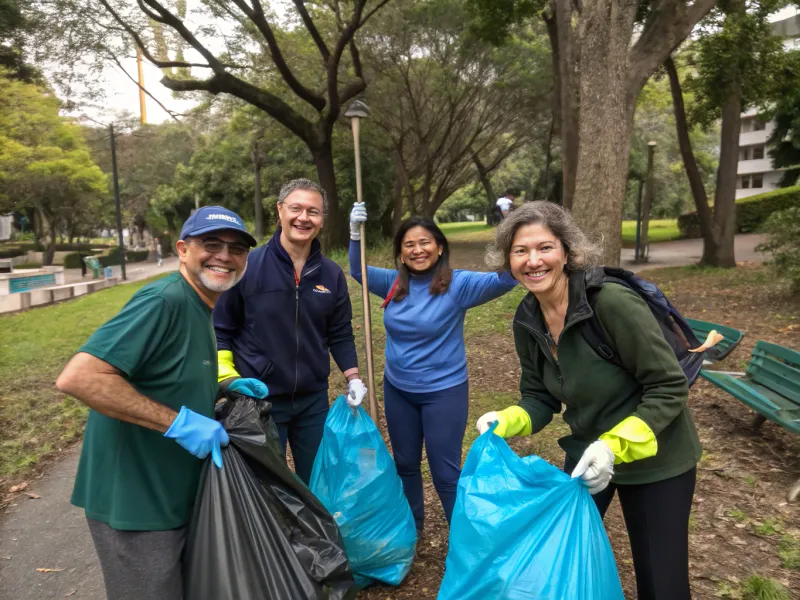
Volunteering for causes you care about is a meaningful way to reclaim your identity. It connects you with your values and allows you to make a positive impact in your community.
Engaging in volunteer work provides a sense of purpose and fulfillment, reminding you of your contributions to the world. It’s an opportunity to align your actions with your beliefs and passions.
Volunteering also introduces you to new people and experiences, broadening your social network and offering fresh perspectives. These connections can be enriching and supportive, fostering a sense of belonging.
By giving your time and energy to causes you believe in, you reaffirm your identity and reinforce your values. It’s a reminder that you are part of something larger than yourself and that your efforts matter.
Volunteering is a journey of self-discovery and empowerment, as it encourages empathy and compassion. It’s a step towards reclaiming your identity by embracing your role as an active, engaged member of society.
17. Engage in Physical Activity

Engaging in physical activity is a powerful step in reclaiming your identity. Exercise not only boosts physical health but also enhances mental and emotional well-being.
Participating in physical activities you enjoy, such as jogging, yoga, or team sports, helps you reconnect with your body and mind. It’s a form of self-care that fosters strength, resilience, and confidence.
Physical activity releases endorphins, improving mood and reducing stress. It’s a space where you can focus solely on yourself, free from distractions and responsibilities.
Regular exercise empowers you to set and achieve personal goals, reinforcing your sense of accomplishment and capability. It’s a reminder that you are strong and capable, deserving of time and dedication to your well-being.
By engaging in physical activity, you honor your body and its abilities, reclaiming your identity through movement and vitality. It’s a celebration of life and a commitment to living fully and healthily.
18. Reflect on Your Values
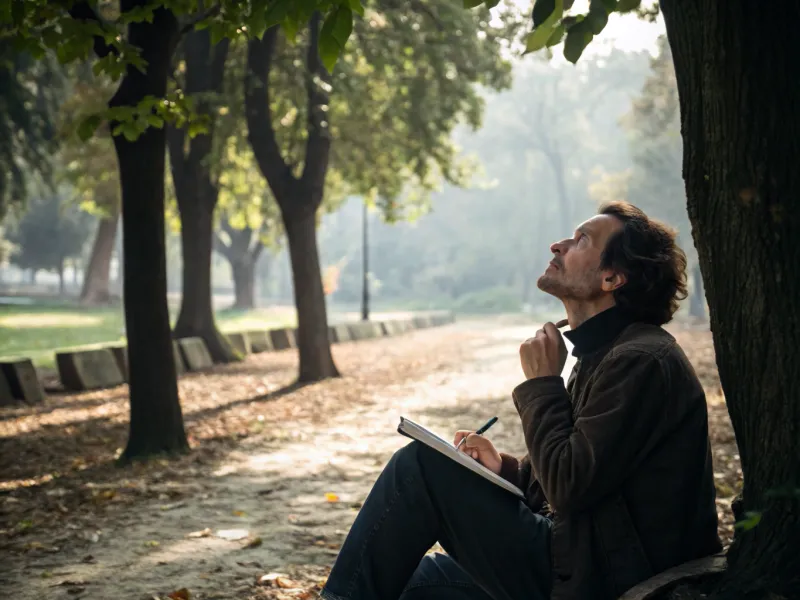
Reflecting on your values is a foundational step in reclaiming your identity. Values are the principles that guide your actions and decisions, defining who you are at your core.
In marriage, values can sometimes become secondary as you navigate shared responsibilities and commitments. Taking time to reexamine what truly matters to you helps realign your life with your authentic self.
Begin by considering what brings you joy, fulfillment, and peace. Identify the beliefs and principles that resonate with your true self. This reflection helps clarify your purpose and direction.
Aligning your life with your values empowers you to make decisions that honor your identity. It’s about living authentically and embracing the person you are, unapologetically.
Reflecting on your values is a journey of self-discovery and affirmation. It’s a reminder that your identity is defined by your beliefs and actions, not external expectations. This introspection is a powerful step towards reclaiming your true self.
19. Learn to Say No

Learning to say no is a crucial step in reclaiming your identity. It involves setting boundaries and prioritizing your needs, rather than always accommodating others.
In marriage, it’s easy to fall into the habit of saying yes to avoid conflict or disappointment. However, constantly putting others first can lead to burnout and a loss of self.
Saying no is an act of self-respect and empowerment. It’s about recognizing your limits and making choices that align with your well-being.
This practice allows you to focus on what truly matters to you, rather than being overwhelmed by obligations. It empowers you to make decisions based on your values and desires.
By learning to say no, you reclaim your time, energy, and identity. It’s a reminder that you are in control of your life and deserve to prioritize yourself. This journey is about embracing your autonomy and living authentically.
20. Develop a Personal Ritual
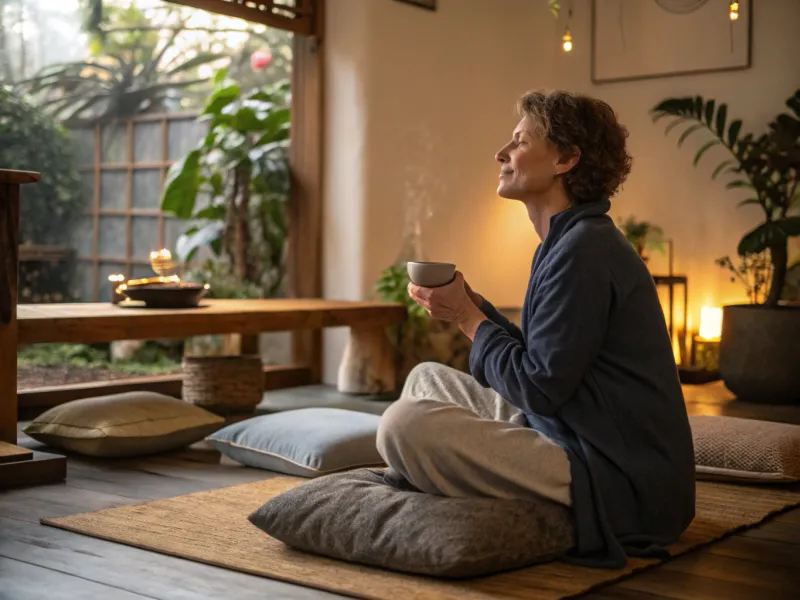
Developing a personal ritual can be a grounding step in reclaiming your identity. Rituals provide structure and meaning, offering a sense of continuity and comfort.
Personal rituals, such as a morning routine, evening reflection, or weekly walks in nature, create space for introspection and self-care. They are moments dedicated to connecting with yourself amidst the chaos of daily life.
These rituals are personal and unique, tailored to your needs and desires. They serve as a reminder of your individuality and priorities, grounding you in your identity.
By establishing a personal ritual, you create a sanctuary of consistency and peace. It’s a commitment to nurture your relationship with yourself, fostering self-awareness and growth.
Developing a personal ritual is a journey of self-discovery and affirmation. It’s a reminder that you are deserving of time and attention, allowing you to reclaim your identity through meaningful, intentional practices.
21. Reconnect with Old Friends

Reconnecting with old friends can be a heartwarming step in reclaiming your identity. These relationships often stem from times when you were more in touch with your true self.
Old friends remind you of who you were before the responsibilities and changes of marriage. They hold memories and stories that can reignite the essence of your individuality.
Rekindling these connections provides a sense of continuity and belonging. It’s a chance to share your journey and hear theirs, finding solace in the familiarity and support they offer.
Through laughter and shared experiences, old friends help you reconnect with your past and present self. They offer perspective and encouragement, affirming your journey of self-discovery.
By reaching out to old friends, you create a network of support and love, reminding you of your identity beyond the roles you play. It’s a celebration of lifelong connections and a step towards embracing your authentic self.
22. Explore Spiritual Practices
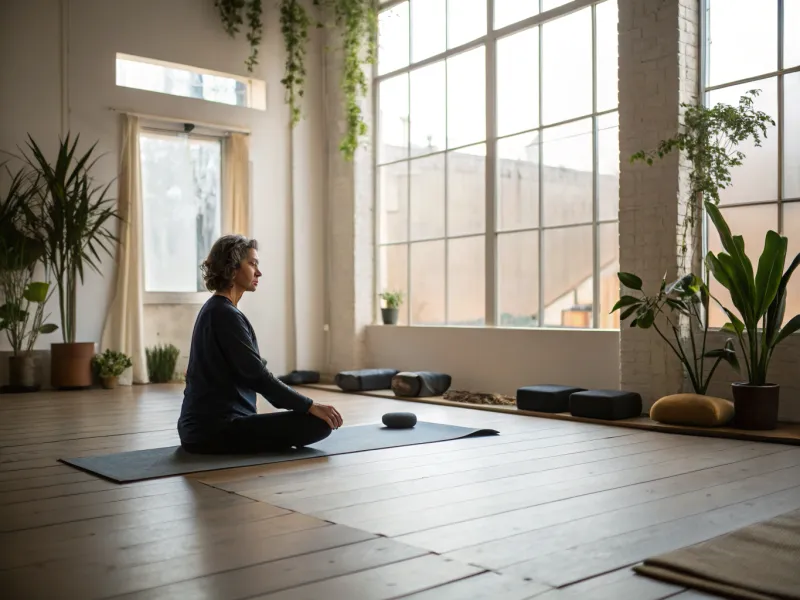
Exploring spiritual practices can be a profound step in reclaiming your identity. These practices offer a deeper connection to yourself and the universe, providing guidance and peace.
Spirituality is personal and can take many forms, such as meditation, prayer, or yoga. These practices encourage introspection and mindfulness, allowing you to connect with your inner self.
Engaging in spiritual practices fosters a sense of purpose and meaning, helping you navigate life’s challenges with grace and resilience. It’s about finding solace in something greater than yourself.
By exploring spirituality, you open yourself to new perspectives and understandings, enriching your journey of self-discovery. It’s a reminder that your identity is multifaceted, encompassing mind, body, and spirit.
These practices are a pathway to inner peace and empowerment, supporting your journey to reclaim your identity. They remind you of your strength and connectedness, both to yourself and the world around you.
23. Attend Workshops and Seminars

Attending workshops and seminars can be an enriching step in reclaiming your identity. These events offer opportunities for learning, growth, and connection with others who share your interests.
Workshops and seminars expose you to new ideas and perspectives, encouraging you to think critically and creatively. They provide a space for self-improvement and exploration, helping you discover new facets of your identity.
Engaging in these events fosters a sense of motivation and inspiration. It’s about investing in yourself and your personal development, prioritizing your growth and happiness.
By attending workshops and seminars, you connect with a community of like-minded individuals, expanding your network and support system. These interactions can be empowering and affirming, reinforcing your journey of self-discovery.
This experience is a reminder that learning is a lifelong journey and that your identity is ever-evolving. It’s a commitment to yourself and your aspirations, paving the way for a more authentic and fulfilling life.
24. Practice Gratitude

Practicing gratitude is a transformative step in reclaiming your identity. It involves acknowledging and appreciating the positive aspects of your life, fostering a sense of contentment and joy.
Gratitude shifts your focus from what is lacking to what is present, enhancing your overall well-being. It encourages you to recognize the abundance in your life, both big and small.
Begin a gratitude practice by keeping a journal where you regularly note things you are thankful for. This reflection helps cultivate a positive mindset and reinforces your sense of self-worth.
Gratitude also fosters empathy and connection with others, enhancing your relationships and sense of belonging. It’s a reminder that you are part of a larger tapestry of life, filled with beauty and wonder.
By practicing gratitude, you embrace the present moment and celebrate your life as it is. It’s a journey of self-discovery and affirmation, empowering you to reclaim your identity with appreciation and grace.
25. Engage in Lifelong Learning

Engaging in lifelong learning is a powerful step in reclaiming your identity. It’s about nurturing your curiosity and expanding your knowledge, regardless of age or stage in life.
Lifelong learning fosters personal growth and adaptability, encouraging you to explore new interests and skills. It keeps your mind active and engaged, enhancing your sense of purpose and fulfillment.
Whether it’s through formal education, online courses, or self-directed study, learning enriches your life and opens doors to new possibilities. It’s a commitment to personal development and self-improvement.
By embracing lifelong learning, you affirm your individuality and potential. It’s a reminder that you are capable of growth and change, and that your identity is not static but ever-evolving.
This journey is about embracing the joy of discovery and reclaiming your identity through knowledge and exploration. It’s a celebration of your capacity to learn and grow, at any age.
26. Celebrate Your Achievements

Celebrating your achievements is an empowering step in reclaiming your identity. It’s about acknowledging your accomplishments and recognizing your efforts and resilience.
In marriage, achievements can sometimes be overshadowed by shared responsibilities and commitments. Taking time to honor your successes affirms your capabilities and contributions.
Create a space where you display mementos of your achievements, such as awards, certificates, or personal milestones. This visual reminder reinforces your sense of self-worth and pride.
Celebrating achievements boosts your confidence and motivation, encouraging you to pursue your goals with determination. It’s a reminder of your strength and perseverance, worthy of recognition and celebration.
By valuing your accomplishments, you embrace your unique journey and identity. It’s a step towards reclaiming your identity with gratitude and appreciation for all you have achieved. This celebration is a testament to your unwavering spirit and potential.







